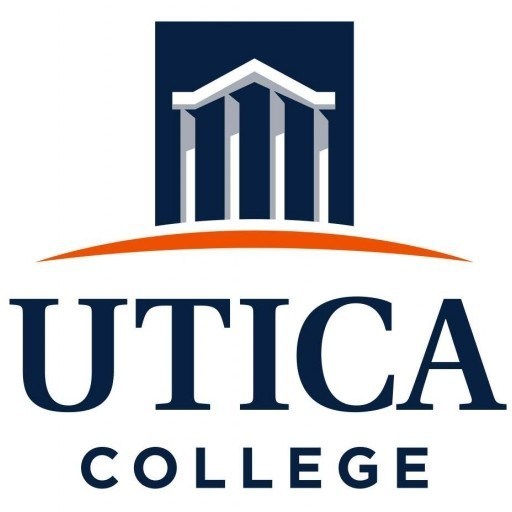Photos of university / #ubridgeport
The Bachelor of Science in Nutrition at the University of Bridgeport is an interdisciplinary program designed to prepare students for a diverse range of careers in the health and wellness industries. The program offers a comprehensive curriculum that combines foundational sciences, such as biology, chemistry, and physiology, with specialized courses in human nutrition, dietetics, food science, and community health. Students will gain an in-depth understanding of the role of nutrition in disease prevention, health promotion, and overall well-being. The program emphasizes both theoretical knowledge and practical skills, including nutritional assessment, counseling techniques, and meal planning. Students have opportunities to participate in internships, research projects, and community outreach programs to gain real-world experience and apply their knowledge in practical settings. The faculty comprises experts in nutrition science, dietetics, and public health who are dedicated to mentoring students and fostering an environment of inquiry and innovation. Graduates of the program are well-equipped to pursue careers as registered dietitians, nutrition consultants, health educators, or continue their studies in graduate programs. The University of Bridgeport’s state-of-the-art facilities and collaborative learning environment support student success and professional development. With an emphasis on ethical practice, cultural sensitivity, and evidence-based knowledge, the Bachelor of Science in Nutrition prepares students to make meaningful contributions to individual and community health. Whether aiming to work in clinical settings, community programs, sports nutrition, or food industry consulting, students will find a rigorous and supportive academic environment that fosters lifelong learning and leadership in the field of nutrition.
The Bachelor of Science in Health Sciences with a concentration in Nutrition at the University of Bridgeport is a comprehensive program designed to prepare students for a variety of careers in the health and wellness industry. This program provides students with a solid foundation in biological sciences, nutrition, public health, and healthcare principles, equipping them with the knowledge and skills necessary to promote healthy lifestyles and support individuals in achieving optimal wellbeing. The curriculum incorporates coursework in human nutrition, metabolism, food science, and dietary planning, alongside courses focused on health promotion, disease prevention, and healthcare systems. Students will also explore topics such as community health, nutrition therapy, and counseling techniques to effectively communicate nutritional information and motivate positive behavioral changes. The program emphasizes experiential learning through internships, community projects, and practical labs, enabling students to apply their theoretical knowledge in real-world settings. Graduates of this program are prepared to pursue careers in clinical nutrition, public health organizations, wellness programs, food industry, or to continue their education in dietetics, medical, or health-related fields. The faculty members are experts in their fields, committed to providing personalized mentoring and fostering a collaborative learning environment. The program's goal is to produce well-rounded, competent professionals who can contribute to improving health outcomes and advancing nutrition science. Opportunities for research and interdisciplinary collaboration further enrich the student experience, ensuring graduates are ready to meet the demands of the evolving healthcare landscape.
Admissions Requirements typically include a completed application form, official transcripts demonstrating prior academic achievement in related fields, and a minimum GPA requirement, often around 2.5 or higher. Applicants may need to submit standardized test scores such as the GRE, although requirements can vary by program and year. Relevant coursework in biology, chemistry, and nutrition is usually preferred or required for admission. Letters of recommendation, often two or three, are generally requested to assess academic potential and motivation. A personal statement or essay outlining career goals, interest in nutrition, and reasons for choosing the University of Bridgeport's program may also be required. Some programs might ask for a resume or curriculum vitae detailing relevant experience or employment in health sciences, dietetics, or related fields. International applicants should provide proof of English language proficiency through TOEFL or IELTS scores, unless they have completed prior education in an English-speaking country. The program may also require a healthcare background or specific prerequisite courses. Additionally, applicants might need to participate in an interview or provide additional documentation as specified by the admissions office. The university values applicants with a strong commitment to advancing in health sciences and a demonstrated interest in nutrition. Financial aid applications and documentation may also be part of the admissions process for eligible students. Overall, the program aims to admit well-qualified students who are passionate about the field of nutrition and have a solid foundational knowledge in sciences relevant to human health.
The University of Bridgeport offers a comprehensive range of financing options for students enrolled in the Health Sciences — Nutrition program, designed to make higher education more accessible and affordable. Prospective students are encouraged to explore multiple funding sources including federal financial aid, institutional scholarships, private scholarships, grants, and student loans. The institution participates in federal and state aid programs such as the Free Application for Federal Student Aid (FAFSA), which provides eligible students with opportunities to receive grants and low-interest loans to cover tuition, fees, and other educational expenses. In addition to government assistance, the University of Bridgeport offers numerous institutional scholarships based on academic achievement, leadership qualities, and financial need. These scholarships, which do not require repayment, can significantly reduce the overall cost of education.
Students are also encouraged to pursue private scholarship opportunities available through various organizations, community groups, and professional associations relevant to health sciences and nutrition fields. The university’s financial aid office provides personalized guidance to help students navigate application processes, deadlines, and eligibility requirements for these awards. For those who require borrowing options, the university offers information about federal student loans, including Direct Subsidized and Unsubsidized Loans, and Perkins Loans where applicable, as well as guidance on responsible borrowing practices.
The university also promotes payment plans that allow students to spread out tuition payments over semester installments, reducing financial burden and improving affordability. Additionally, some students may be eligible for employer tuition reimbursement programs if they are employed in related health or nutrition fields. International students should explore specific scholarship opportunities and financial aid policies applicable to non-U.S. citizens. In sum, the University of Bridgeport provides a variety of financing options and resources to support students pursuing studies in Health Sciences — Nutrition, aiming to facilitate access to quality education and support student success throughout their academic journey.
The Bachelor of Science in Health Sciences with a specialization in Nutrition at the University of Bridgeport is a comprehensive program designed to prepare students for careers in nutrition, dietetics, health promotion, and related fields. The curriculum combines foundational sciences, such as biology, chemistry, and physiology, with specialized courses in human nutrition, community nutrition, food science, and dietary management. Students gain a thorough understanding of how nutrients affect human health, the role of diet in disease prevention, and evidence-based approaches to nutritional counseling and education. The program emphasizes the development of analytical and communication skills necessary for effective health promotion and nutrition advocacy.
Throughout their studies, students have opportunities for practical experience through internships, community service projects, and cooperative education (co-op) placements, which help bridge academic knowledge with real-world application. The program also prepares students to meet the requirements for advanced study or professional certification, such as becoming a registered dietitian or nutritionist, depending on additional program options or postgraduate education. The faculty comprises experienced professionals in the field of nutrition and health sciences who provide mentorship and guidance. The university’s location and partnerships with healthcare institutions offer students access to diverse clinical and community settings for experiential learning. Graduates of this program are equipped to pursue careers in hospitals, clinics, public health organizations, research, food industry, and wellness programs, or to continue their education through graduate degrees in nutrition, public health, or related areas. The program promotes a blend of scientific rigor, practical skills, and a commitment to improving individual and community health through proper nutrition.










